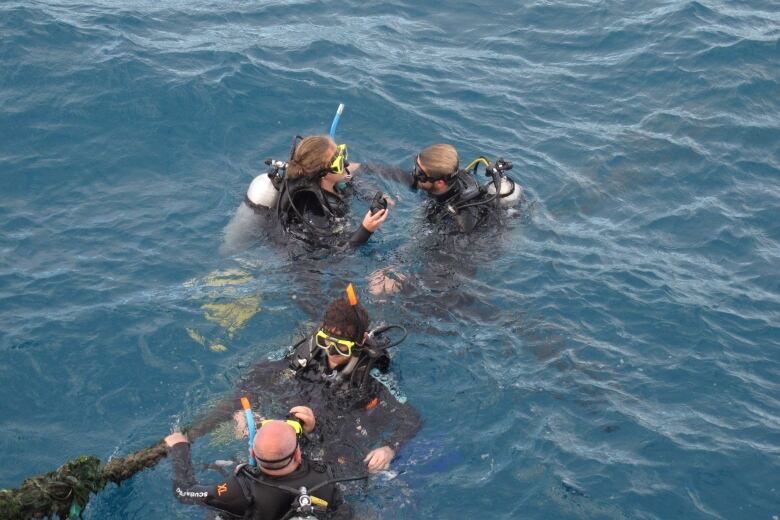Mass bleaching in Great Barrier Reef kills huge swaths of coral
Up to 35 per cent of coral on northern and central part of reef is dead or dying
Mass bleaching has destroyed as much as 35 percent of the coral on the northern and central Great Barrier Reef, Australian scientists said on Monday. That'sa major blow to the World Heritage Site that attracts about $5 billion intourism each year.
Australian scientists said in March just seven percent of the entire Great Barrier Reef had avoided any damage as a result of bleaching, and they held grave fears particularly for coral on the northern reef.

After further aerial surveys and dives to access the damage across 84 reefs in the region, Australian scientists said the impact of the bleaching is more severe than they had expected.
- VIDEONorthern Great Barrier Reef experiences worst coral bleaching on record, researchers warn
- Biologists want to make 'super coral' to take on climate change
- ElNinois bleaching Christmas Island corals, saysUVicscientist
Bleaching occurs when the water is too warm, forcing coral to expel living algae and causing it to calcify and turn white. Mildly bleached coral can recover if the temperature drops, otherwise it may die.
Although the impact has been exacerbated by one of the strongest ElNinoweather systems in nearly 20 years, which recently subsided, scientists believe climate change is the underlying cause.

This year is the third time in 18 years that the Great Barrier Reef has experienced mass bleaching due to global warming, and the current event is much more extreme than we've measured before said professor Terry Hughes, director of the ARC Centre of Excellence for Coral Reef Studies at James Cook University.
But Australian Prime Minister, Malcolm Turnbull defended the country's management of the reef, addingthat the World Heritage Committee decided last year not to put the Great Barrier Reef on the endangered list because of Australia's management of it.
"So there is no question that we are doing a good job,"he said.
UNESCO's World Heritage Committee last May stopped short of placing the Great Barrier Reef on an "in danger"list, but the ruling raised concern about its future.
Omitted from UNESCO report
The new survey findings come just days after Australia's Department of Environment confirmed it omitted its contribution to a U.N. report examining the impact of climate change on world heritage sites over concerns it could create "confusion"and have a negative impact on tourism.
Australian Opposition leader, Bill Shorten pledged A$500 million ($469 million)on Monday to further protect the reef.

"This will be the single largest and indeed most overdue injection of funds to save the Great Barrier Reef," he said. "The Barrier Reef is in great peril, we see the effects of climate change, we have a government currently in Canberra, who despite Mr. Turnbull's protestations is not acting on climate change."
The World Heritage and Tourism in a Changing Climate report, which was released on Friday with no references to Australia, has sparked outrage from climate scientists, who were not informed that their contributions had been removed.
Australia is one of the largest carbon emitters per capita because of its reliance on coal-fired power plants for electricity.
Despite pledging to cut carbon emissions, Australia has continued to support fossil fuel projects, including Adani Enterprises Ltd's proposed A$10 billion Carmichael coal project in the Galilee Basin in western Queensland.













_(720p).jpg)


 OFFICIAL HD MUSIC VIDEO.jpg)
.jpg)



























































































